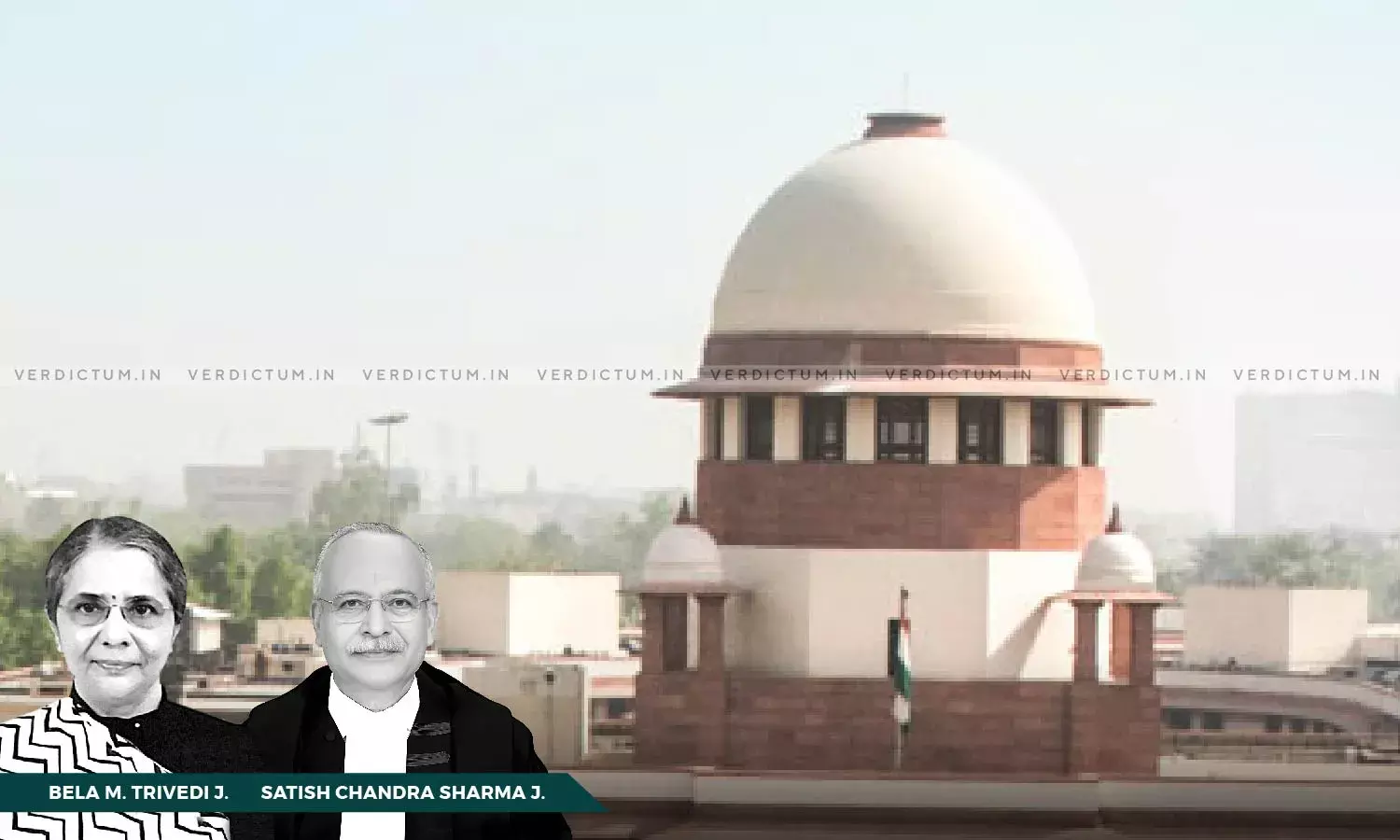Section 216 CrPC Does Not Give Any Right To Accused To File Fresh Discharge Application After Charge Is Framed: Supreme Court
The Supreme Court held that Section 216 CrPC does not grant the accused the right to file a fresh discharge application after charges have been framed, particularly when a discharge application under Section 227 of the CrPC has already been dismissed.
The Court set aside the order of the Madras High Court that allowed an application under Section 397 of the Cr.P.C. by calling it “an absolutely extraneous consideration and in utter disregard of the settled legal position.” The Court stated that the powers of revision under Section 397 (1) of the Cr.P.C. should be exercised very sparingly and only where the decision under challenge is grossly erroneous or when there is non-compliance with the provisions of law.
A Bench of Justice Bela M. Trivedi and Justice Satish Chandra Sharma observed, “Section 216 does not give any right to the accused to file a fresh application seeking his discharge after the charge is framed by the court, more particularly when his application seeking discharge under Section 227 has already been dismissed. ”
AOR V. Elanchezhiyan represented the appellants, while Sr. Advocates Sidharth Luthra and Siddharth Bhatnagar appeared for the respondents.
An FIR registered in 2009 implicated nine people, including the accused, under Sections 147, 148, 323, 324, 307, and 302 of the IPC. The complainant in the FIR alleged a violent incident at the AIADMK Party Office in Dharmapuri. It was alleged that the accused, led by AIADMK Town Secretary, attacked the complainant and his brother, who succumbed during the course of treatment.
The Investigating Officer submitted a charge sheet implicating 31 accused before the Magistrate who committed the case to the trial court. The accused sought discharge from the case under Section 227 of the Cr.P.C., but the trial court rejected this application. The High Court too upheld the trial court's order.
However, the accused filed another application under Section 216 of Cr.P.C., seeking to alter the charges, submitting he was not present at the crime scene. This application was dismissed by the trial court. In yet another revisional application before the High Court, it not only allowed the revision but also ordered further investigation under Section 173(8) of the Cr.P.C.
The Supreme Court stated that the practice of filing untenable applications under Section 227 of the CrPC was “highly deplorable, and if followed, should be dealt with sternly by the courts,”
“Unfortunately, such applications are being filed in the trial courts sometimes in ignorance of law and sometimes deliberately to delay the proceedings. Once such applications though untenable are filed, the trial courts have no alternative but to decide them, and then again such orders would be challenged before the higher courts, and the whole criminal trial would get derailed,” the Bench remarked.
“The Court exercising Revisional Jurisdiction under Section 397 should be extremely circumspect in interfering with the order framing the charge, and could not have interfered with the order passed by the Trial Court dismissing the application for modification of the charge under Section 216 Cr.P.C., which order otherwise would fall in the category of an interlocutory order,” the Court observed.
Consequently, the Court held that the accused had miserably failed to get himself discharged from the case in the first round of litigation when he had filed the application under Section 227 Cr.P.C, and yet he filed “another vexatious application seeking modification of charge under Section 216 of Cr.P.C. to derail the criminal proceedings.”
Accordingly, the Supreme Court allowed the appeal and imposed a cost of Rs. 50k on the accused.
Cause Title: K. Ravi v. State Of Tamil Nadu & Anr. (Neutral Citation: 2024 INSC 642)
Appearance:
Appellants: AOR V. Elanchezhiyan; Advocates V. Ramakrishnan, Padmanabha Raja K.R., Nasim Anwar, Karthi P and S. Prakash
Respondents: Sr. Advocates Sidharth Luthra and Siddharth Bhatnagar; AOR Sabarish Subramanian and Shakun Sharma; Advocates C. Kranthi Kumar, Vishnu Unnikrishnan, Naman Dwivedi, Danish Saifi, Sarathraj B, Tanvi Anand, Pracheta Kar, Aditya Sidhra, Nadeem Afroz, Dharmendra Kumar Pandey and Aarjoo Rawat












